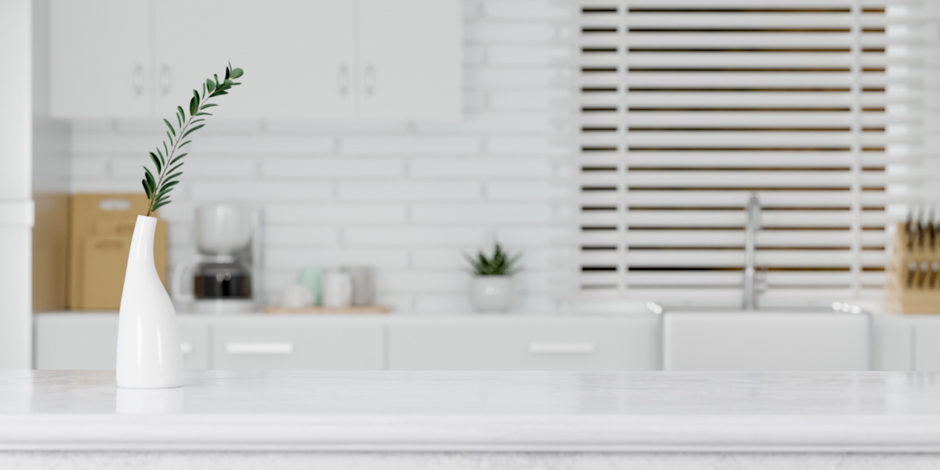
Common Marble Countertop Issues in Montgomery County and How to Fix Them
In Montgomery County, Pennsylvania, marble countertops give any kitchen or bathroom a sense of class and sophistication. However, marble is prone to some problems that could develop with time, just like any natural stone. This article will examine the most typical marble countertop issues Montgomery County residents encounter and offer workable fixes and preventative measures so that your marble surfaces last for many years to come.
- Stains and Spills: The most common problem with marble countertops is staining brought on by spills of acidic substances like wine, vinegar, or citrus juice. These compounds can penetrate marble’s porous surface if ignored, leaving behind tenacious stains.
Solution: Use a soft towel to quickly blot the spilt substance to stop it from soaking into the marble. Warm water and a mild pH-balanced stone cleanser should be used to clean the area. If the stain doesn’t go away, you might want to try using a poultice of baking soda and water to draw out more severe stains.
- Etching: Marble is prone to etching, a reaction between acidic substances and the calcium carbonate in the stone that leaves dull areas or scratches on the surface.
Solution: The best way to prevent etching is through prevention. Always use coasters and cutting boards to shield the marble from contact with corrosive or acidic substances. If etching happens, the luster of the surface can be restored by using a marble polishing agent.
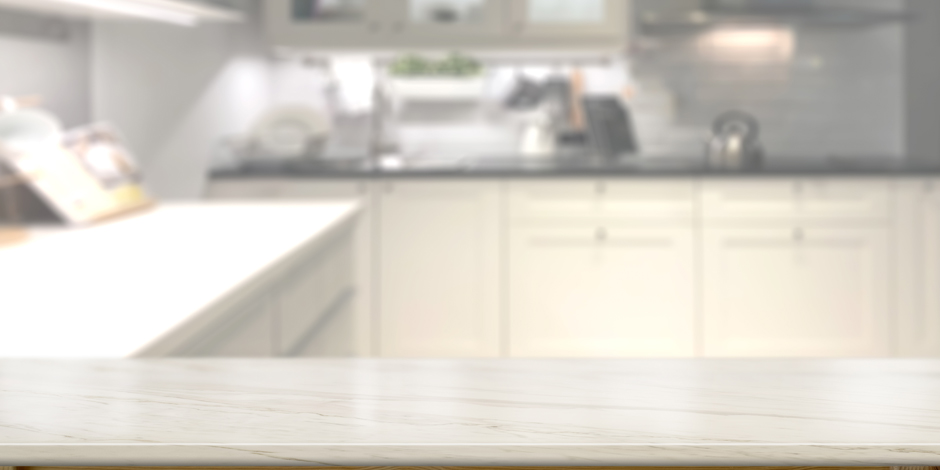
- Scratches and Chips: Heavy or pointy things, such as pots, pans, or knives, can damage the beauty of marble countertops by leaving scratches or even chips on the surface.
Solution: Use cutting boards and put protective padding under heavy things to prevent scratches. Try rubbing away small dings with a soft cloth and marble polishing agent. It’s recommended to look for professional repair services for more significant chips or damages.
- Dullness and Wear: Over time, regular usage and maintenance can cause marble countertops to lose their brilliance and get dull.
Solution: Use a soft, microfiber cloth and a pH-neutral stone cleanser to routinely clean your marble surfaces. Use a marble-specific sealer on a regular basis to maintain the sheen and shield the surface from blemishes and scratches.
- Water Rings: When moisture is allowed to evaporate on the surface of marble countertops, water rings or stains may appear.
Solution: Clean up spills and water right away with a soft towel to prevent water rings. If water rings start to emerge, gently scrub the area with a solution of baking soda and water, then thoroughly rinse and dry.
Homeowners in Montgomery County can preserve the beauty and lifespan of their marble surfaces by being aware of these typical marble countertop issues and using the right solutions. Remember that prevention is frequently the best strategy, so protecting your marble countertops proactively will help keep their elegance for many years to come. Don’t be afraid to contact specialists like Tri State Marble Countertop Care if you run into any severe problems or need professional assistance to make sure your marble countertops get the care they need.
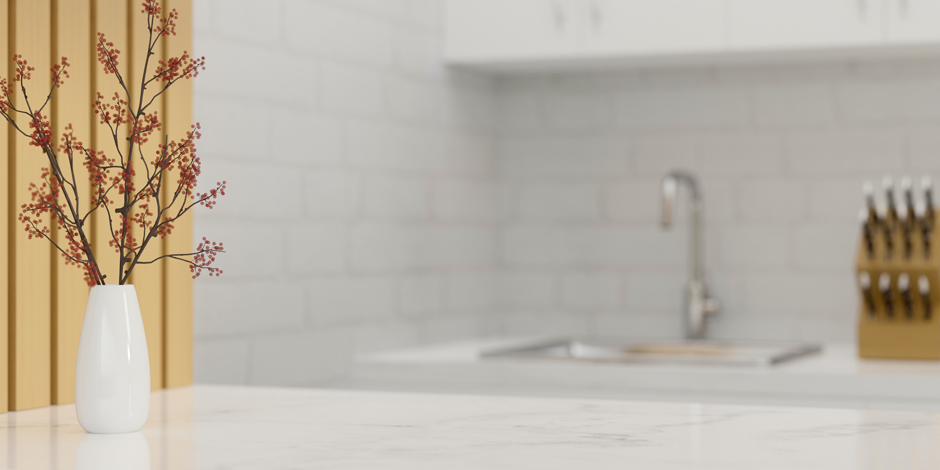
Choosing the Right Cleaning Products for Your Marble Countertops in Montgomery County
In Montgomery County, Pennsylvania, marble countertops give any kitchen or bathroom an air of luxury and timeless beauty. However, it’s crucial to use the correct cleaning chemicals in order to preserve their spotless appearance and increase their longevity. The delicate surface of marble can be harmed by using aggressive or acidic cleaners, which can cause stains, etching, and a loss of luster. In this post, we’ll walk you through the process of selecting the best cleaning supplies for your Montgomery County marble countertops so they stay in pristine shape for years to come.
- Understand the Sensitivity of Marble: Marble is a type of natural stone that is susceptible to acids due to its predominant calcium carbonate composition. Avoid cleaning your marble countertops with ordinary household products that contain lemon, vinegar, or other acidic substances since they can etch the surface and lose their sheen. Additionally, marble’s flawless finish can be damaged by scratches caused by abrasive cleaners.
- Opt for pH-Neutral Stone Cleaners: When cleaning marble countertops, always go with a pH-neutral cleaner made especially for surfaces made of natural stone. These cleaners have a pH level that is adjusted, ensuring efficient cleaning without endangering the marble. Choose items with the designations “marble-safe” or “suitable for natural stone.”
- Gentle and Natural Solutions: When performing routine maintenance, think about utilizing gentle and natural cleaning solutions. Your marble countertops may be safely and effectively cleaned with a straightforward solution of warm water and mild dish soap. Warm water should be used to dilute a tiny amount of mild dish soap before using a soft microfiber cloth to clean the countertops. Make sure to completely cleanse the surface with clean water and then dry it with a soft cloth.
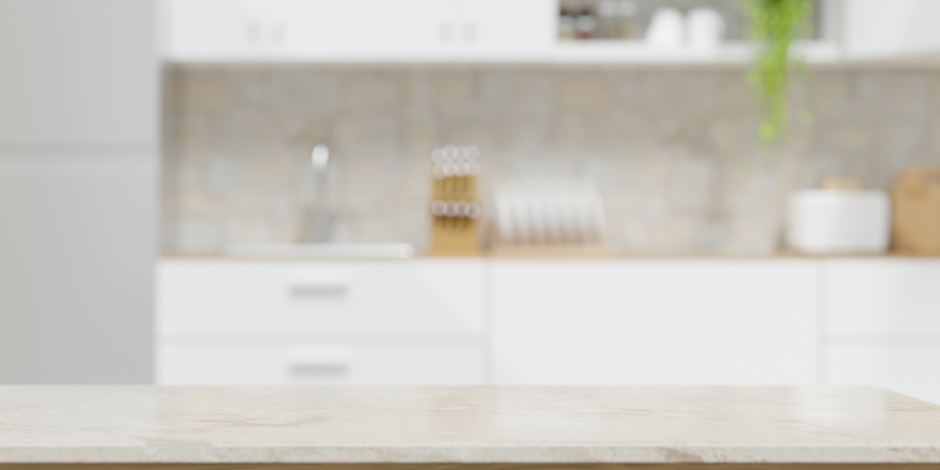
- Avoid Harsh Chemicals and Ammonia: Steer clear of harsh chemicals and ammonia-based cleansers. These can seriously harm marble countertops. Avoid products with ammonia, bleach, or any other acidic ingredients. These substances have the potential to destroy your marble’s surface permanently by removing the protective sealer.
- Test New Cleaners in an Inconspicuous Area: Perform a tiny patch test on an inconspicuous location before using a new cleaning product on your full marble countertop. Follow the cleaner’s instructions exactly, then watch for any negative effects. You can use the product on the entire surface if it turns out to be safe.
- Consider Marble-Specific Cleaning Kits: Take into account marble-specific cleaning kits. Numerous businesses provide such kits, which come with application equipment, microfiber towels, and pH-balanced cleansers. These kits, which are designed specifically for marble repair, can be a practical and dependable choice.
Using the proper cleaning supplies is essential to maintaining the durability and beauty of your marble countertops in Montgomery County. Always choose pH-neutral stone cleaners, stay away from harsh chemicals, and test new solutions on a small area first. You can make sure your marble worktops continue to be a gorgeous focal point in your house for many years to come by adhering to these straightforward instructions. Consult with specialists like Tri State Marble Countertop Care if you ever have questions or come across difficult stains to get expert guidance and help maintaining the beauty of your marble surfaces.
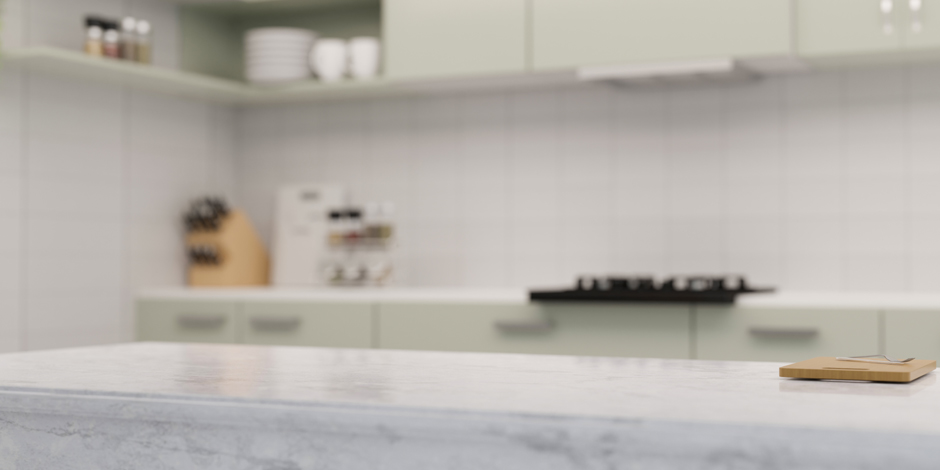
Sealing and Protecting Your Marble Countertops in Montgomery County: A Step-by-Step Guide
The ageless and opulent appeal of marble countertops makes them a cherished addition to any kitchen or bathroom in Montgomery County, Pennsylvania. Proper sealing and protection are crucial for ensuring their longevity and maintaining their gorgeous appearance for years. Marble countertops can be shielded from stains, etching, and moisture absorption by being sealed. We will lead you through the process of sealing and safeguarding your marble countertops in this step-by-step manual to help you keep their beauty and sturdiness.
Step 1: Gather the Required Materials assemble all the required ingredients before you begin sealing:
- pH-neutral stone cleaner
- Soft microfiber cloths
- Marble sealer (penetrating sealer is recommended)
- Paintbrush or foam brush
- Plastic wrap
- Tape (optional)
Step 2: Cleaning the marble countertops completely with warm water and a pH-neutral stone cleanser. Before applying the sealer, make sure the surface is totally clean by removing any dirt, spills, or residues. With a gentle microfiber towel, dry-clean the countertops.
Step 3: Conduct a water test Try a quick water test to see if your marble countertops require sealing. Add a few droplets of water here and there on the surface. Your countertops are sufficiently sealed if, after a few minutes, the water beads up and doesn’t soak into the marble. It’s time to start the sealing procedure if the water begins to absorb.
Step 4: Apply the marble. To ensure appropriate mixing, thoroughly shake the marble sealer container. Apply a uniform layer of sealant to the marble surface using a paintbrush or foam brush. To prevent the sealer from drying before you can distribute it evenly, work in small pieces. Make sure the sealer doesn’t pool or puddle on the surface.
Step 5: Give time for absorption Allow the marble sealer to penetrate the countertop as directed by the manufacturer. The time it takes for the sealer to be absorbed is typically between 10 and 15 minutes. The marble may appear to change over this period as it gradually darkens.
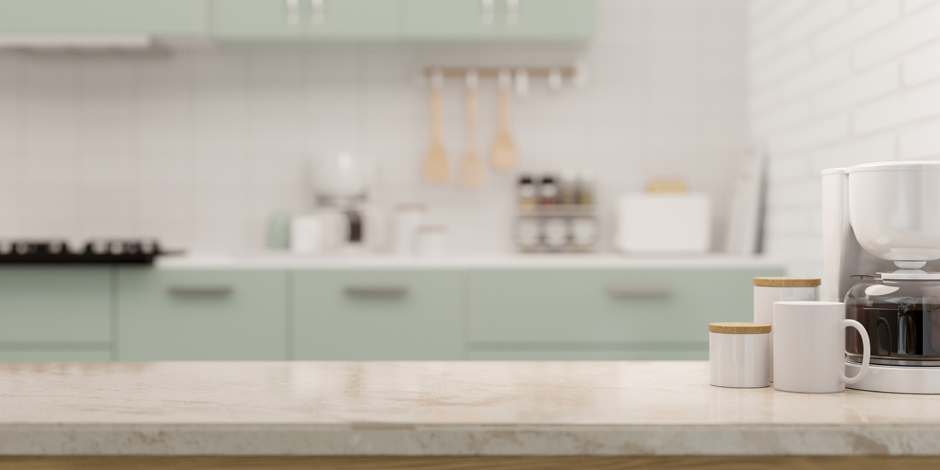
Step 6: Look for any dry areas. Check for any dry areas or locations where the sealer could have missed after the absorption period. Reapply the sealer to any areas you find, if necessary, and let it sit for a few more minutes.
Step 7: Buff and Remove Extra Sealant Buff the surface to remove any extra sealant and obtain a smooth finish using a clean, dry microfiber cloth. To guarantee comprehensive covering, pay close attention to the edges and corners. To prevent streaks or smudges, be cautious when performing this technique.
Step 8: Optional Second Coat (If Recommended) For the best protection, certain marble sealers might require a second layer. In the event that the manufacturer’s instructions call for a second application, proceed as previously, leaving enough time for drying in between coats.
Step 9: Keep the Countertop Safe While It Cure Cover the sealed marble countertops with plastic wrap to aid in proper curing. In the course of the curing process, this will shield the surface from any unintentional spills or moisture. Tape can be used to hold the plastic wrap in place if necessary.
Step 10: Give the cure time Allow the marble countertops to cure for the amount of time recommended by the sealer’s maker. Curing timeframes can differ, but they usually last between 24 and 48 hours. To ensure that the sealer sets properly, refrain from using the countertops during this time.
In order to preserve the beauty and durability of your marble countertops in Montgomery County, it is essential to seal and protect them. This detailed tutorial will show you how to build a barrier that will shield your marble surfaces from stains and moisture absorption so they continue to be a gorgeous center point in your house for many years to come. Keep in mind to clean your marble countertops regularly with a pH-neutral stone cleaner, and seek the advice of specialists like Tri State Marble Countertop Care if you have any particular questions or need more help.

0 comments